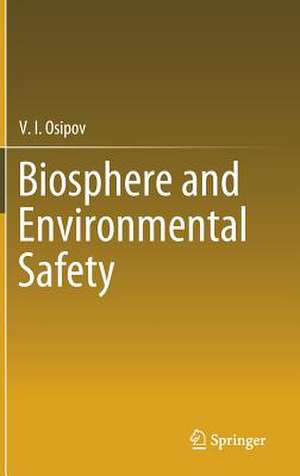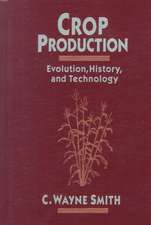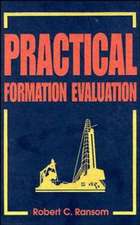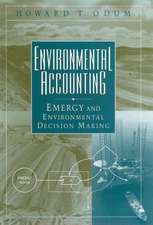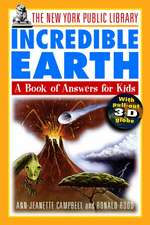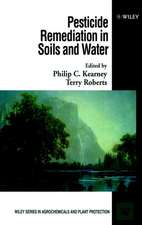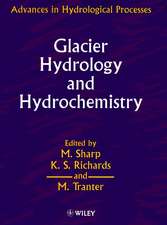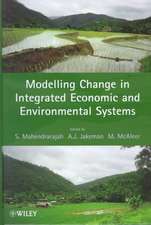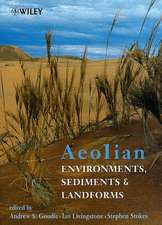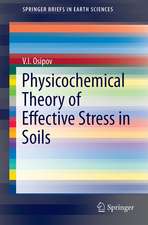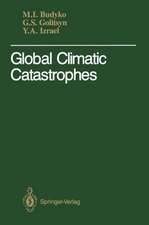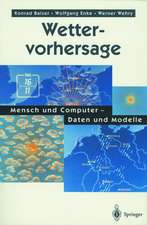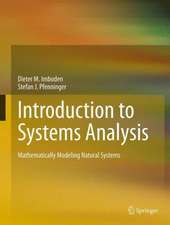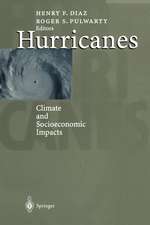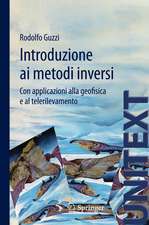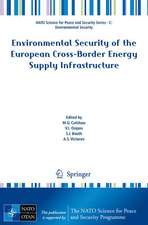Biosphere and Environmental Safety
Autor V. I. Osipoven Limba Engleză Hardback – 3 iul 2018
The modern world currently faces three global trends inducing biosphere degradation and the aggravation of ecological hazards, namely: a) rapid and uncontrolled growth of human population on the Earth and insufficient natural resources to sustain it; (b) technogenesis development; and (c) global climate change and the aggravation of natural disasters. Ecological safety and military security are becoming the crucial conditions for the survival of modern civilization. To mitigate the ecological strain on the Earth, the technogenesis strategy should be changed and many other pressing issues must be resolved. These problems should be addressed using the biosphere approach, because the individual human being is the biosphere constituent, and his or her safety cannot be provided without maintaining the entire natural system on our planet.
| Toate formatele și edițiile | Preț | Express |
|---|---|---|
| Paperback (1) | 629.09 lei 6-8 săpt. | |
| Springer International Publishing – feb 2019 | 629.09 lei 6-8 săpt. | |
| Hardback (1) | 635.15 lei 6-8 săpt. | |
| Springer International Publishing – 3 iul 2018 | 635.15 lei 6-8 săpt. |
Preț: 635.15 lei
Preț vechi: 747.23 lei
-15% Nou
Puncte Express: 953
Preț estimativ în valută:
121.57€ • 132.10$ • 102.19£
121.57€ • 132.10$ • 102.19£
Carte tipărită la comandă
Livrare economică 21 aprilie-05 mai
Preluare comenzi: 021 569.72.76
Specificații
ISBN-13: 9783319912585
ISBN-10: 3319912585
Pagini: 290
Ilustrații: IX, 53 p. 26 illus. in color.
Dimensiuni: 155 x 235 mm
Greutate: 0.27 kg
Ediția:1st ed. 2019
Editura: Springer International Publishing
Colecția Springer
Locul publicării:Cham, Switzerland
ISBN-10: 3319912585
Pagini: 290
Ilustrații: IX, 53 p. 26 illus. in color.
Dimensiuni: 155 x 235 mm
Greutate: 0.27 kg
Ediția:1st ed. 2019
Editura: Springer International Publishing
Colecția Springer
Locul publicării:Cham, Switzerland
Cuprins
Introduction.- Biosphere as a still unlearned living sphere.- How many of us will be? Population of the Earth.- Technogenesis and Its impact on the biosphere state.- Populaltion load. Adaptation corridor of a man.- What does happen with the climate?.- Living with natural disaster risk.- Market economy and ecology.- Nature conservation and nature use. Ecological safety.- Nature as a living soul. Moral aspect.- Future of civilization V.I. Verndasky and the noospher History of ecological crises on the Earth Ripening of the modern ecological crisis. Will the civilization survive? Conclusion.
Notă biografică
Prof. Victor Ivanovich OSIPOV is the full member of the Russian Academy of Sciences, Scientific Advisor of the Sergeev Institute of Environmental Geoscience RAS, Dr. Sci. (Geol.-Min.), honorary professor of the Moscow State University and the Geological Institute of Chinese Academy of Science Professor.
Prof. Victor I. OSIPOV is undoubtedly a leading Russian scientist in environmental geoscience, engineering geology, soil and rock engineering, and geodynamics, who has made a significant progress to solving engineering geological and environmental problems. V.I. Osipov has contributed to the world and Russian science with the considerable achievements in the prediction, study of mechanisms and regularities of the development of geological hazards, natural risks assessment theory, and minimization of natural disasters consequences. The field of his scientific interest also lies in soil and rock engineering, investigation of soil composition and properties, physico-chemical soil mechanics.
Victor Ivanovich Osipov was born in 1937 in Novo-Mikhailovka village, Russia. In 1959, he graduated from the Moscow State University, Geological Faculty, Department of Soil and Rock Engineering and Engineering Geology. From 1964 to 1991, he was engaged in the education of students at the Geological faculty of Moscow State University, first as an assistant and associate professor, and later, since 1977 as a full professor. V.I. Osipov delivered lectures in “Soil and Rock Engineering”, "Field Methods of Engineering Geological Study of Soils and Rocks", and "Fundamentals of Physico-Chemical Soil Mechanics", etc. About 40 PhD dissertations and a lot of MSc diploma projects were performed under his guidance.
In different years, Victor I. Osipov performed field research in the engineering geological study in a number of regions of Russia for the purpose of hydraulic power plants construction and the mineral deposits development. He obtained new results in the experimental study of microstructure and structural bonds of soils, lithogenesis processes in clay, origin of loess collapsibility, swelling and liquifaction of clay. He is the author of a new method of grouting and reinforcing of soils.
Since 1991, Prof. Victor Osipov is the director of the Institute of Environmental Geoscience at the Russian Academy of Sciences (IEG RAS), which is the leading scientific center in Russia for engineering geology, hydrogeology, environmental geoscience, and engineering seismology.
Prof. Osipov is the head of the Scientific Council at the Russian Academy of Sciences on the problems of environmental geoscience, engineering geology, and hydrogeology; he is the member of the Russian National Committee of Geologists, and he is the editor-in-chief of the Russian academic periodical journal "Environmental Geoscience" ("Geoekologiya”).
V.I. Osipov is the author of more than 650 scientific publications (among them 13 monographs and 20patents of inventions in soil and rock engineering). The scientific achievements of V.I. Osipov were marked by the State Prize of the USSR (1988 ); he is the laureate of the Moscow Major Prize in environment protection (2002), the winner of the National Ecological Prize (2004); the laureate of the Russia State medal of the first degree “For great services to the Motherland” (2008), and the State Award of the Russian Government (2008).
Prof. Victor Osipov is undoubtedly a scientist of international repute, who made a major contribution to the strengthening international relations among geoscientists and engineering geologists all over the world. In 1986-1990 he was elected to the office of Vice President IAEG. For many years he has been the leader of the Russian national group IAEG. His international scientific achievements were recognized by the international community of engineering geologists: in 2012, he became the awardee of the highest IAEG award, the Hans Cloos medal.
Victor Ivanovich Osipov was born in 1937 in Novo-Mikhailovka village, Russia. In 1959, he graduated from the Moscow State University, Geological Faculty, Department of Soil and Rock Engineering and Engineering Geology. From 1964 to 1991, he was engaged in the education of students at the Geological faculty of Moscow State University, first as an assistant and associate professor, and later, since 1977 as a full professor. V.I. Osipov delivered lectures in “Soil and Rock Engineering”, "Field Methods of Engineering Geological Study of Soils and Rocks", and "Fundamentals of Physico-Chemical Soil Mechanics", etc. About 40 PhD dissertations and a lot of MSc diploma projects were performed under his guidance.
In different years, Victor I. Osipov performed field research in the engineering geological study in a number of regions of Russia for the purpose of hydraulic power plants construction and the mineral deposits development. He obtained new results in the experimental study of microstructure and structural bonds of soils, lithogenesis processes in clay, origin of loess collapsibility, swelling and liquifaction of clay. He is the author of a new method of grouting and reinforcing of soils.
Since 1991, Prof. Victor Osipov is the director of the Institute of Environmental Geoscience at the Russian Academy of Sciences (IEG RAS), which is the leading scientific center in Russia for engineering geology, hydrogeology, environmental geoscience, and engineering seismology.
Prof. Osipov is the head of the Scientific Council at the Russian Academy of Sciences on the problems of environmental geoscience, engineering geology, and hydrogeology; he is the member of the Russian National Committee of Geologists, and he is the editor-in-chief of the Russian academic periodical journal "Environmental Geoscience" ("Geoekologiya”).
V.I. Osipov is the author of more than 650 scientific publications (among them 13 monographs and 20patents of inventions in soil and rock engineering). The scientific achievements of V.I. Osipov were marked by the State Prize of the USSR (1988 ); he is the laureate of the Moscow Major Prize in environment protection (2002), the winner of the National Ecological Prize (2004); the laureate of the Russia State medal of the first degree “For great services to the Motherland” (2008), and the State Award of the Russian Government (2008).
Prof. Victor Osipov is undoubtedly a scientist of international repute, who made a major contribution to the strengthening international relations among geoscientists and engineering geologists all over the world. In 1986-1990 he was elected to the office of Vice President IAEG. For many years he has been the leader of the Russian national group IAEG. His international scientific achievements were recognized by the international community of engineering geologists: in 2012, he became the awardee of the highest IAEG award, the Hans Cloos medal.
Textul de pe ultima copertă
This book analyses the state of the natural environment and the causes of its degradation using the biosphere approach. Further, those issues that must be resolved immediately on the global level are identified following the ideas defined by V.I. Vernadsky, and new principles of Man-Nature interaction are pursued.
The modern world currently faces three global trends inducing biosphere degradation and the aggravation of ecological hazards, namely: a) rapid and uncontrolled growth of human population on the Earth and insufficient natural resources to sustain it; (b) technogenesis development; and (c) global climate change and the aggravation of natural disasters. Ecological safety and military security are becoming the crucial conditions for the survival of modern civilization. To mitigate the ecological strain on the Earth, the technogenesis strategy should be changed and many other pressing issues must be resolved. These problems should be addressed using the biosphere approach, because the individual human being is the biosphere constituent, and his or her safety cannot be provided without maintaining the entire natural system on our planet.
The modern world currently faces three global trends inducing biosphere degradation and the aggravation of ecological hazards, namely: a) rapid and uncontrolled growth of human population on the Earth and insufficient natural resources to sustain it; (b) technogenesis development; and (c) global climate change and the aggravation of natural disasters. Ecological safety and military security are becoming the crucial conditions for the survival of modern civilization. To mitigate the ecological strain on the Earth, the technogenesis strategy should be changed and many other pressing issues must be resolved. These problems should be addressed using the biosphere approach, because the individual human being is the biosphere constituent, and his or her safety cannot be provided without maintaining the entire natural system on our planet.
Caracteristici
Develops a new ecological strategy based on the biosphere approach and taking into account the regularities of biosphere development Includes supplementary material on the influence of technogenesis on global climate change, the development of natural disasters and biosphere degradation Highlights the contradictions between the market economy and ecology Provides new facts about the global ecological crisis to be expected in the following decades
